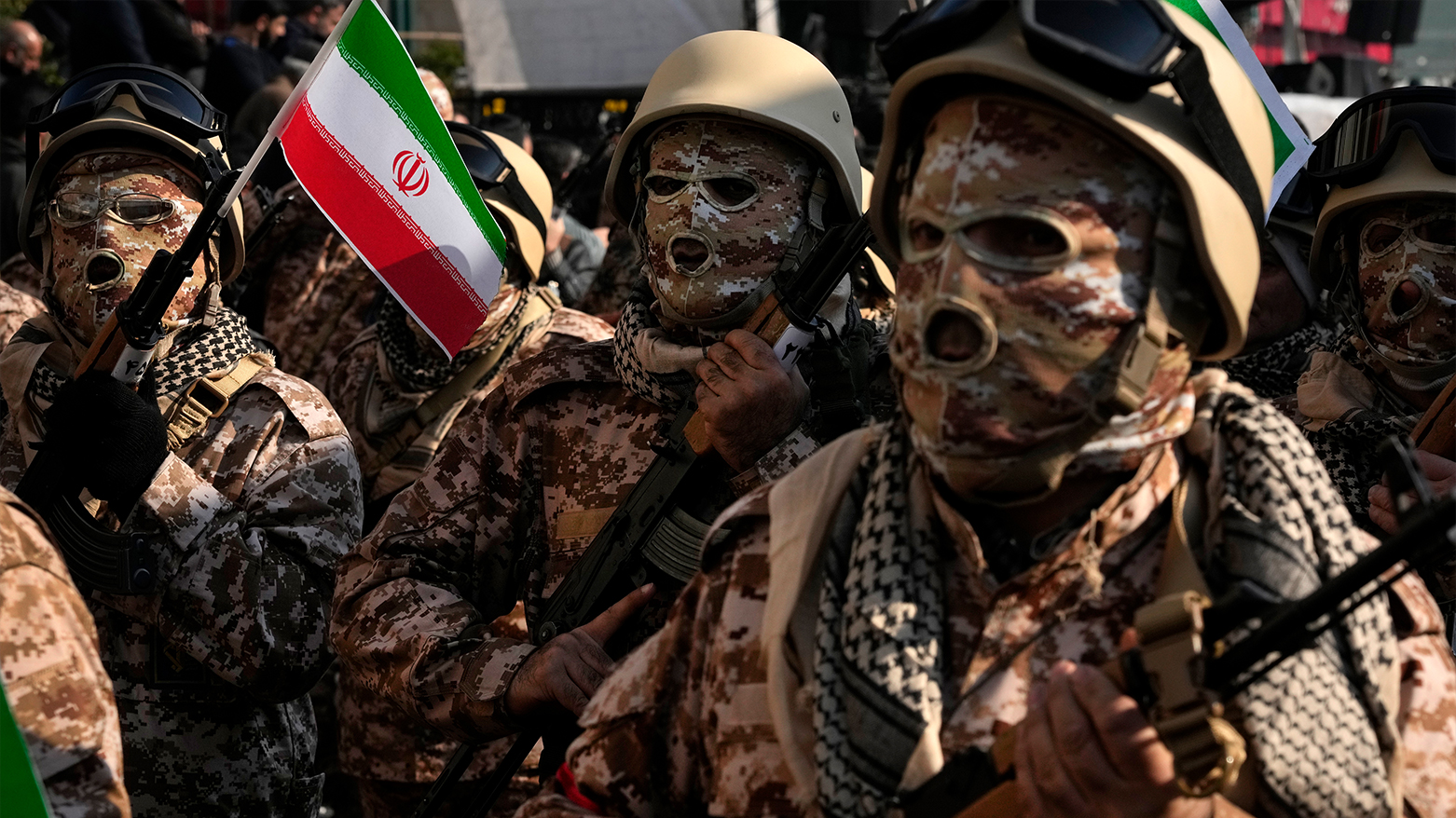Iran Says It Dismantled Mossad-Linked 'Terrorist Team' in Khorasan
Iran's IRGC announced the arrest of an 8-member team allegedly linked to Mossad, accusing them of planning attacks. The move comes amid an intense counter-espionage campaign following a recent war with Israel.

ERBIL (Kurdistan24) – Iran's Islamic Revolutionary Guard Corps (IRGC) has announced the discovery and dismantling of an eight-member team allegedly affiliated with Israel's Mossad intelligence service in the northeastern province of Razavi Khorasan, accusing the individuals of gathering intelligence on sensitive sites and planning attacks.
The announcement, made in a statement published by the IRGC-affiliated Tasnim News Agency on Friday, marks the latest development in a fierce and ongoing counter-espionage war between the two regional adversaries.
According to the statement from the Public Relations of the Imam Reza (AS) Islamic Revolutionary Guard Corps, the arrests followed "precise and continuous intelligence operations" conducted by the IRGC's Intelligence Organization in coordination with the judiciary.
The report alleged that the individuals received specialized training from Mossad agents through cyberspace.
During the recent conflict in June, which Iran refers to as the "12-day Holy Defense," the statement claimed the agents sent the coordinates of vital and sensitive centers, as well as information about prominent military figures, to Israeli intelligence officers.
The IRGC further asserted that the arrested elements were preparing to carry out operations against national and military officials and to sabotage important centers in the holy city of Mashhad before they were apprehended.
A quantity of raw materials for making launchers, bombs, and explosives was reportedly discovered and confiscated from the network, which the statement also accused of communicating with separatist groups.
The arrests are the latest manifestation of an intense counter-intelligence campaign by Tehran following a brief but devastating 12-day war with Israel in June. In the aftermath of the conflict, which saw unprecedented Israeli airstrikes on Iranian nuclear and military infrastructure, Iranian authorities have aggressively pursued individuals suspected of collaborating with Israeli intelligence, leading to a series of high-profile arrests and executions.
Earlier this month, as previously reported by Kurdistan24, Iran executed Roozbeh Vadi, who was accused of passing classified information to Mossad about a nuclear scientist killed during the June war.
In late June, another man, Majid Mosayyebi, was hanged on charges of espionage after authorities alleged he had been in regular contact with a Mossad operative and was paid in cryptocurrency for providing sensitive data.
These Iranian actions come against a backdrop of detailed reports revealing a significant strategic shift by Israel to increasingly utilize non-Israeli operatives for covert missions inside Iran.
An extensive investigation by ProPublica, citing numerous Israeli intelligence officials, detailed how Mossad had secretly recruited, trained, and armed Iranian dissidents to carry out commando attacks that proved pivotal in disabling Iran's air defenses ahead of the large-scale Israeli air assault in June, dubbed "Operation Rising Lion."
This strategy, according to the report, was the culmination of a years-long effort to build a network of agents inside the country motivated by a mix of revenge against the regime and financial or personal incentives.
Further reports have underscored the depth and effectiveness of Israel’s intelligence penetration.
A recent investigation by The Sunday Times described a "ruthlessly effective" year-long campaign by Israeli agencies that included technologically advanced operations, such as the assassination of Hamas leader Ismail Haniyeh in a Revolutionary Guard guesthouse in Tehran and the sophisticated pager bomb attacks that wounded thousands of Hezbollah members.
The report noted that Israel often favors "false flag" actions, using "cutouts" to run agents and mount operations, thereby reducing risk. The operations detailed in these reports provide a broader context for the types of activities Iran is seeking to dismantle with arrests like those announced in Razavi Khorasan.
In its concluding remarks, the IRGC statement recalled Iran's 2020 law on "Countering the Hostile Actions of the Zionist Regime," which prohibits any form of cooperation or contact with Israel and mandates that perpetrators be dealt with decisively.
The public relations office requested that citizens report any suspicious cases to the relevant authorities, underscoring the state of high alert within the country as the shadow war with Israel continues to unfold.